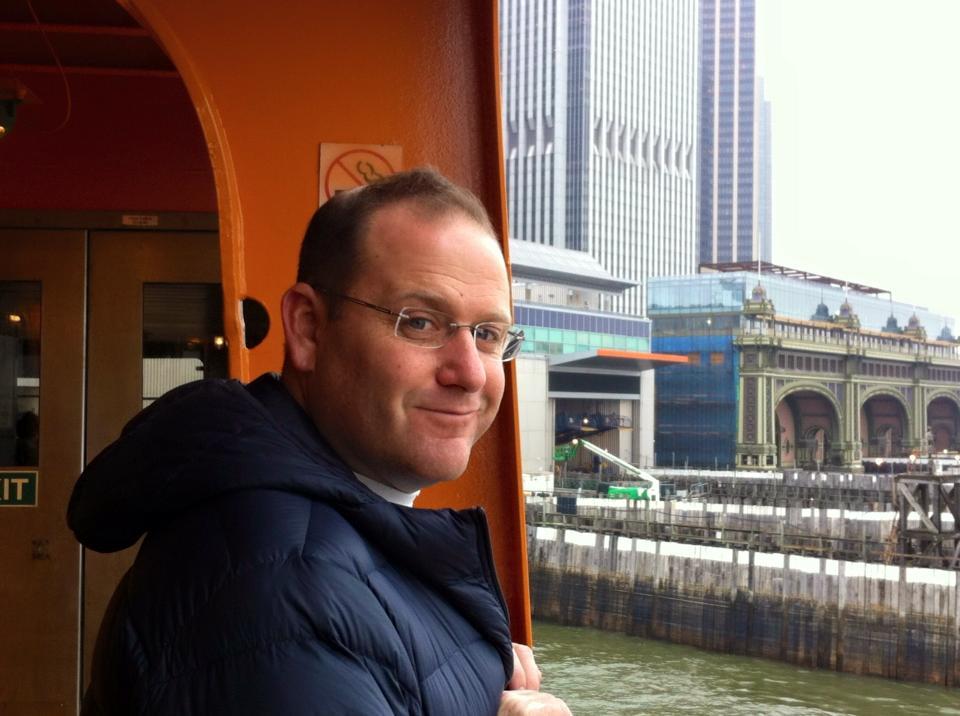Salutation from the Editor
Welcome!
I am delighted to take over as Editor-in-chief of Didaskalia! I am honored to step into this post and I will do everything I can to maintain the excellent standard of work done by my predecessor (and good friend) Amy Cohen. I am fortunate in having had so much of her help while easing the transition, and I’m thankful for the support given by Toph Marshall and the rest of the editorial board. I am committed to keeping Didaskalia an open-access e-journal focused on the performance of ancient theater and its reception. While I hope to continue the tradition of publishing a combination of articles, translations and reviews, I aim to widen our intended audience to include more practitioners and playwrights whose work includes, or is influenced by, antiquity.
The journal will now be housed at the University of Nebraska, Lincoln, with the gracious support of my home department of Classics and Religious Studies. The original funding was supplemented by an Enhance Grant from the College of Arts and Sciences. Part of the trick to winning over university support for such a project, I have learned, was the creation of undergraduate job and research opportunities. To that end, I have partnered with the UCARE program at UNL, with the encouragement and support of Justina Clark, which is a source of funding for undergraduate workers. As we move forward, these workers will be critical to helping me with all the technical side of producing this journal. For this first issue, I had the support of my student Ethan Ostdiek, who was primarily responsible for anything that even remotely involved computer knowledge. In addition, I inherited from Amy the spectacular copy-editor Jay Kardan, whose dedication to detail improved every piece of writing found here.
I still sought more undergraduate jobs or research opportunities for more university support. To my delight, after a conversation with the Editorial Board, Fiona Macintosh proposed a project that has the potential to provide excellent collaborative opportunities for years to come. Fiona and the Archive of Performances for Greek and Roman Drama (APGRD) have already developed a spectacular open-access e-book on Medea (http://www.apgrd.ox.ac.uk/learning/medea-a-performance-history). They are also completing a second such resource on Agamemnon, shortly to be released. Both books will be linked to Didaskalia as we move forward. In the past academic year, the team who put together the first e-book trained a group of UNL undergraduates (under the supervision of Matthew Loar and me) on the tools and methodology to begin creating an upcoming third book, this one on the performance history of the Antigone. A team of about eight undergraduates, also funded by UNL's UCARE program, are now working together on this project, which will continue through the 2019–2020 school year. As the students work on this project, they will also develop the tools necessary to support the regular production of Didaskalia. Now that I have a team of undergraduate researchers and assistant editors, I am not only keeping the journal functional and funded, but also using it as a jumping-off point to offer Classics undergraduates real-world skills that will make the classics major more appealing, both to the students themselves and to potentially dubious administrators (not to mention the general public).
I deliberately stalled on releasing my first issue because I felt I needed time to become familiar with the procedure before going public. I was also—quite foolishly, it turned out—concerned that there would not be enough submissions. But I can only hope that all subsequent issues can include as fine a group of contributors as this one. From this point forward, we will be releasing articles as soon as they are ready to go, so that Issue 15 will consist of everything that has been submitted, accepted, and completed within the calendar year of 2019. Perhaps we will be able to have a swift-enough turnaround to include in one issue articles that are in conversation with each other! We shall see.
So far, so good. I was delighted to have such excellent articles and reviews for my first issue. And my sense of ring composition was particularly satisfied as I began, just as Amy did eight years ago, with a new publication by Douglass Parker (thanks to the generous support of his family). This all bodes well for our future. So keep the articles, reviews, and ideas coming. I look forward to working with you all!
-Mike

